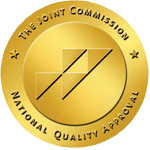Recovering Alcoholic Gifts and How to Support Recovery
In this article, we will discuss great ideas for recovering alcoholic gifts and how to support loved ones during their recovery.
Why Gifts Matter in Recovery
Finding the right recovering alcoholic gifts can be a meaningful way to show our support and encouragement. This is important when someone we care about is in recovery from alcohol addiction. We can contribute to their well-being and sobriety by giving them thoughtful gifts.
Choosing the right gifts for a recovering alcoholic requires sensitivity and consideration. It could be a special occasion, a gesture of love, or anything thoughtful. In this article, we will explore a variety of clever gift ideas.
These gifts help inspire individuals in recovery, promoting self-care and positive lifestyle choices. These recovering alcoholic gifts are designed to celebrate their progress toward lasting recovery.

Additional Methods of Love and Support
During the recovery process, alcoholics often face significant challenges, both physically and emotionally. While it may seem counterintuitive, some alcoholics may appreciate receiving gifts as a form of support during this time.
Gifts can serve as tangible reminders of encouragement and care, symbolizing the presence of loved ones and their willingness to stand by them.
Finding Unique Ways to Show You Care
It is important to note that gifts are the only way to express love and support to individuals during their recovery journey. Engaging in other expressions of the five love languages, such as quality time, acts of service, words of affirmation, or physical touch, can also play a crucial role in showing support.
Spending quality time with the individual, engaging in activities that promote their well-being, offering kind and encouraging words, or providing assistance through acts of service can demonstrate love and care in ways that resonate deeply with them.
Thoughtful Gift Ideas for Recovering Alcoholics
Thoughtful Gift Ideas for Recovering Alcoholics
There are several recovering alcoholic gifts to suit each person. Recovering alcohol gifts could be as simple as a home cooked meal or as exciting as a voucher to a local activity.
Depending on personal preference and budget, the following could be good options:
Inspirational Books or Journals
One opportunity to show someone you care and offer to support is to give the person books that offer inspiration and encouragement. These books can offer insights into recovery from alcohol addiction.1
This can include memoirs of individuals who have overcome addiction and recovery self-help books. In some instances, spiritual literature can provide valuable guidance and motivation.
Self-Care Gifts
Consider giving them resources that promote overall well-being. This can include mindfulness meditation apps and yoga or fitness class passes.
They could also enjoy getting journals for reflection or subscriptions to wellness magazines. These recovering alcoholic gifts encourage self-care and help them develop healthy habits.
Sobriety Milestone Gifts
Personalized recovering alcoholic gifts hold special meaning. These items can give the person a tangible symbol of their strength and resilience.
This can include:
- Engraved jewelry
- Custom-made recovery milestone keychains
- Personalized artwork
Supportive Subscriptions
Consider giving them subscriptions to recovery-focused magazines, online support groups, or podcasts.
These resources offer ongoing support, education, and insights from experts and others in recovery. Receiving these gifts can be valuable for their continued growth and motivation.
Wellness Kits
Put together a wellness kit that promotes relaxation, self-care, and stress relief. This encourages self-care, which can contribute to well-being.
Kit items might include:
- Scented candles
- Bath salts
- Herbal teas
- Stress balls
- Essential oils
Hobbies and Creative Outlets
One creative way to show care is to support their interests and hobbies through gifts related to their creative pursuits. This can include art supplies, musical instruments, gardening tools, or cooking accessories.
Engaging in enjoyable and fulfilling activities can be therapeutic. These activities help them focus on positive outlets. These items make great recovering alcoholic gifts.
Sobriety Tokens
Sobriety tokens are also known as recovery chips or medallions. They are physical tokens that represent milestones in the recovery journey.2
These items can be made into keychains, coins, or medallions. They are engraved with the number of years, months, or days of sobriety. These tokens serve as powerful reminders of their progress and commitment.
Gift Cards
Give the person gift cards to their favorite restaurants, cafés, or wellness centers. However, make sure these places offer non-alcoholic options.
This allows them to enjoy social activities without the temptation of alcohol. Proper socialization supports their engagement in healthy lifestyle choices.
Avoiding Gifts That May Be Triggers
It’s beneficial to provide gifts that contribute positively to the person’s well-being. These recovering alcoholic gifts should encourage their ongoing sobriety journey.
The wrong gifts can trigger negative emotions in recovering individuals. It’s essential to take note of specific considerations when gifting. These considerations will be detailed below.
Alcohol-Related Gifts
Avoid giving recovering alcoholic gifts that are related to alcohol consumption. This includes alcoholic beverages, wine glasses, or bar accessories. These items may trigger cravings or remind them of their past struggles with alcohol.
Social Situations
Be mindful of recovering alcoholic gifts that put the person where alcohol is the primary focus. For example, tickets to events or venues known for heavy drinking may not be suitable.
Instead, consider alcohol-free alternatives as recovering alcoholic gifts. This can include tickets to a movie, concert, or sporting event where alcohol is not the central theme.
Party Favors
Steer clear of recovering alcoholic gifts that resemble party favors. These are often associated with alcohol consumption.
This includes shot glasses, drinking games, or novelty items with alcohol-related messages. These items may inadvertently trigger memories or cravings that can compromise their sobriety.
Triggers and Personal History
Certain scents, places, or objects may be associated with past drinking experiences. These triggers can evoke cravings or negative emotions.3
Consider the individual’s history and known triggers. Avoid recovering alcoholic gifts that may remind them of these triggers.
Sensitivity to Alcohol-Related Topics
Be aware of the person’s sensitivity to alcohol-related topics. Avoid books, movies, or discussions about alcohol addiction or excessive drinking. However, find out if they find it helpful in their recovery journey.
Supportive and Positive Environment
Select recovering alcoholic gifts that contribute to a supportive environment. This means avoiding anything that may perpetuate negative behaviors or enable relapse.
Instead, focus on gifts that promote healthy habits. These gifts should focus on self-care, personal growth, and positive lifestyle choices.
Communication and Understanding
When giving recovering alcoholic gifts, it’s always best to communicate. This is important when the gift giver is unsure about a particular gift’s appropriateness.
Ask the person if they prefer to avoid specific triggers or items. Respect their preferences and be understanding of their needs during their recovery process.
How Can Recovering Alcoholic Gifts Offer Support for the Recovery Process?
A gift that reflects support shows that the giver took time to consider the person’s needs. Here are some ways to express understanding and support through gifts:
Personalization
Personalize the gift to make it unique and meaningful to their recovery journey. It could be an item that represents a significant milestone.
In some instances, a budget-friendly handwritten note expressing encouragement would do. A customized gift that aligns with their interests or hobbies could also work.
Symbolic Meaning
When buying recovering alcoholic gifts, consider items that carry symbolic meaning. The meaning can be related to recovery. This can be a token or piece of jewelry with a recovery symbol.
Items like these include a sobriety coin or a necklace with an inspirational charm. Symbolic gifts remind people of their progress, strength, and commitment to sobriety.
Quality Time
Sometimes the most valuable gift is quality time and support.4 Plan activities that incorporate quality time together.
Loved ones might engage in hobbies, walk, or have meaningful conversations together. Listen actively and offer a shoulder to lean on.
What Are Some Alternative Ideas for Recovering Alcoholic Gifts?
Here are some alternative recovering alcoholic gifts ideas promoting a healthy lifestyle.
Recovering alcoholic gifts can encourage positive choices, promote self-improvement, and contribute to well-being. These items are helpful for individuals in recovery from alcohol addiction:
Exercise Equipment
It’s often beneficial to encourage physical activity and a healthy lifestyle by giving exercise equipment. Exercise can help improve mood, reduce stress, and enhance overall well-being.5
Equipment could include:
- A yoga mat
- Resistance bands
- Weights
- A fitness tracker
Meditation and Mindfulness Tools
Help the person incorporate mindfulness into their daily routine. This can be done by giving them meditation and mindfulness tools.
This can include items like a meditation cushion, guided meditation CDs, or apps. Sometimes, a journal for mindfulness and reflection might be the best bet.
Herbal Tea and Infusers
Support their well-being by providing herbal tea blends and infusers. Herbal teas can be calming and soothing, promoting relaxation and stress relief.
This makes them good recovering alcoholic gifts. Include a variety of flavors to suit their preferences.
Healthy Recipe Books
Inspire healthy eating habits by giving them recipe books. These books should be focused on nutritious meals and snacks. Look for books that offer simple and delicious recipes and balanced nutrition.
Aromatherapy Diffuser and Essential Oils
Promote relaxation and create a peaceful environment with an aromatherapy gift. Consider an aromatherapy diffuser and a selection of essential oils.
Essential oils such as lavender, chamomile, and bergamot can help reduce stress and enhance well-being.
Journaling and Gratitude Prompts
Encourage self-reflection and gratitude by providing a journal. This helps the person start daily writing to track their thoughts and recovery. Journaling helps process emotions and track their progress while focusing on positivity.
Art Supplies
Support the person’s creativity and self-expression by gifting art supplies. Engaging in art can be therapeutic and provide a healthy outlet for emotions.
Art-related gift ideas could include:
- Sketchbooks
- Paints
- Coloring books or adult coloring supplies
Subscription to a Wellness Box
Wellness box service subscriptions provide monthly packages filled with self-care items. These boxes often include products like skincare items and bath salts. Some other packages may have candles, healthy snacks, and wellness tools.
Subscription to a Wellness Box
Encourage the person to connect with nature and engage in outdoor activities. Recovering alcoholic gifts could include hiking boots, a backpack, camping equipment, or a bike.
Outdoor activities can promote physical fitness, mental well-being, and a sense of adventure.
How to Choose the Right Gift for Someone in Recovery
Some challenges can arise when selecting gifts for a recovering alcoholic. It’s crucial to approach gift-giving with the intention of supporting their recovery. When stuck, try consulting with the individual or their loved ones.
In some instances, try seeking advice from professionals specializing in addiction recovery. These experts can help with recovery. They can also ensure the selection of appropriate recovering alcoholic gifts.
Navigating these challenges requires empathy, sensitivity, and open communication. Here are some of the challenges that can arise:
Triggers
One of the main challenges is avoiding recovering alcoholic gifts that may trigger cravings. These items should not remind the individual of their past struggles with alcohol.
Certain items associated with alcohol consumption can evoke memories or desires for alcohol. These wrong recovering alcoholic gifts can potentially jeopardize their sobriety.
Personal Preferences
Choosing the right recovering alcoholic gifts requires understanding the person’s preferences and interests. Finding a gift that aligns with their tastes can be challenging. This happens when the gift giver is unfamiliar with their likes and dislikes.
Sensitivity and Emotional Well-Being
Some people are particularly sensitive during their recovery journey. Certain gifts or gestures may unintentionally evoke negative emotions or highlight their vulnerabilities.
It’s essential to be mindful of their feelings and avoid anything that may cause distress.
Social Pressure
Social pressures or expectations may be associated with gift-giving occasions. This includes birthdays or holidays, where alcohol-related gifts are exchanged. Overcoming these societal norms and finding alternative gift ideas can be a challenge.
Communicating Boundaries
Sometimes it’s challenging for people to communicate and understand each other successfully. This includes gift preferences and avoidable triggers. Open and honest conversations are necessary to ensure the person’s boundaries are respected.
Limited Options
It can be challenging to find recovering alcoholic gifts. Depending on a person’s location, the market may not always offer a wide range of options. This makes it more challenging to find meaningful and appropriate gifts.
Lack of Awareness

Getting the Right Care at Choice House
If you’re looking into recovering alcoholic gifts, you or a loved one may be considering entering recovery, Choice House is a great option for people in recovery and their loved ones to work toward a fulfilling, limitless life.
About Choice House
Choice House is a full continuum, long-term, young adult men’s recovery program. We view addiction through a trauma and attachment lens.
We treat substance use disorder and co-occurring mental health conditions through experiential therapy modalities and 12-step facilitation.
Our unique outdoor component is world-class. We also treat the whole family system. We are JCAHO (The Joint Commission) certified with a 1:1 staff-to-client ratio.
Our Services
We offer recovery treatment at several levels of care. This includes residential treatment, intensive outpatient programs, and family programs.
We use a long-term recovery model to help people achieve lasting success. We offer comprehensive community-building programs and long-term support. This includes weekly and monthly events, quarterly trips, and alumni and family check-in calls.
Contact Us
Our compassionate, caring, and experienced team is ready to work with you and your loved ones. For more information, contact us on our website or give us a call at (720) 577-4422.
Resources
- https://link.springer.com/article/10.1007/s10902-006-9041-2
- https://www.thetokenshop.com/top_benefits_of_recovery_coins
- https://www.ncbi.nlm.nih.gov/pmc/articles/PMC7186308/
- https://www.sciencedirect.com/science/article/pii/S2352853217300482
- https://www.webmd.com/mental-health/addiction/exercise-help-addiction-recovery

